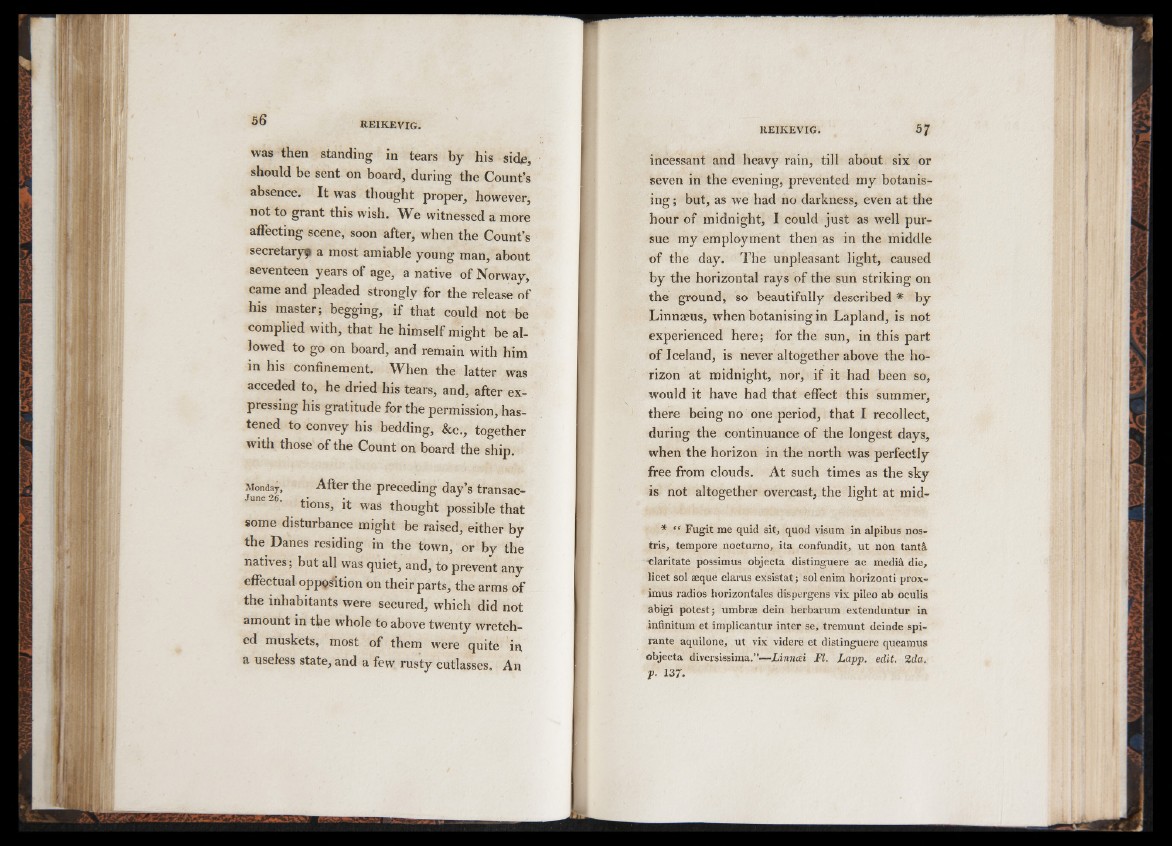
was then standing in tears by his side,
should be sent on board, during the Count’s
absence. It was thought proper, however,
not to grant this wish. We witnessed a more
affecting scene, soon after, when the Count’s
secretary* a most amiable young man, about
seventeen years of age, a native of Norway,
came and pleaded strongly for the release of
his master; begging, if that could not be
complied with, that he himself might be allowed
to go on board, and remain with him
in his confinement. When the latter was
acceded to, he dried his tears, and, after expressing
his gratitude for the permission, hastened
to convey his bedding, &c>, together
with those of the Count on board the ship.
Monday, After the preceding day’s transac-
June 20. .• •. , , tions, it was thought possible that
some disturbance might be raised, either by
the Danes residing in the town, or by the
natives; but all was quiet, and, to prevent any
effectual opposition on their parts, the arms of
the inhabitants were secured, which did not
amount in the whole to above twenty wretched
muskets, most of them were quite in
a useless state, and a few rusty cutlasses. An
incessant and heavy rain, till about six or
seven in the evening, prevented my botanis-
ing; but, as we had no darkness, even at the
hour of midnight, I could just as well pursue
my employment then as in the middle
of the day. The unpleasant light, caused
by the horizontal rays of the sun striking on
the ground, so beautifully described * by
Linnaeus, when botanisingin Lapland, is not
experienced here; for the sun, in this part
of Iceland, is never altogether above the horizon
at midnight, nor, if it had been so,
would it have had that effect this summer,
there being no one period, that I recollect,
during the continuance of the longest days,
when the horizon in the north was perfectly
free from clouds. At such times as the sky
is not altogether overcast, the light at mid-
* “ Fugit me quid sit, quod visum in alpibus nos-
tris, tempore nocturno, ita confundit, ut non tanta
■elaritate possimus objecta distinguere ac media die,
licet sol seque clams exsistat; solenim horizonti prox-
imus radios horizontales dispergens vix pileo ab oculis
abigi potest; umbrae dein herbarum extenduntur in
infinitum et implicantur inter se, tremunt deinde spi-
rante aquilone, ut vix videre et distinguere queamus
objecta diversissima.”—Linnai FI. Lapp. edit. 2da.
p. 137.